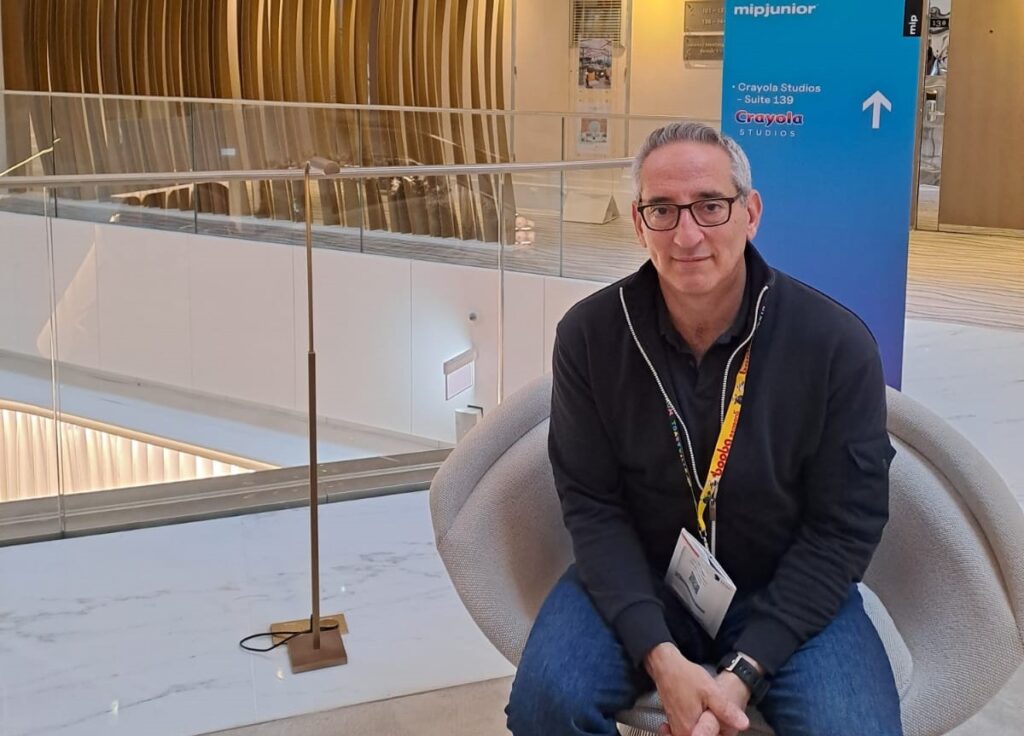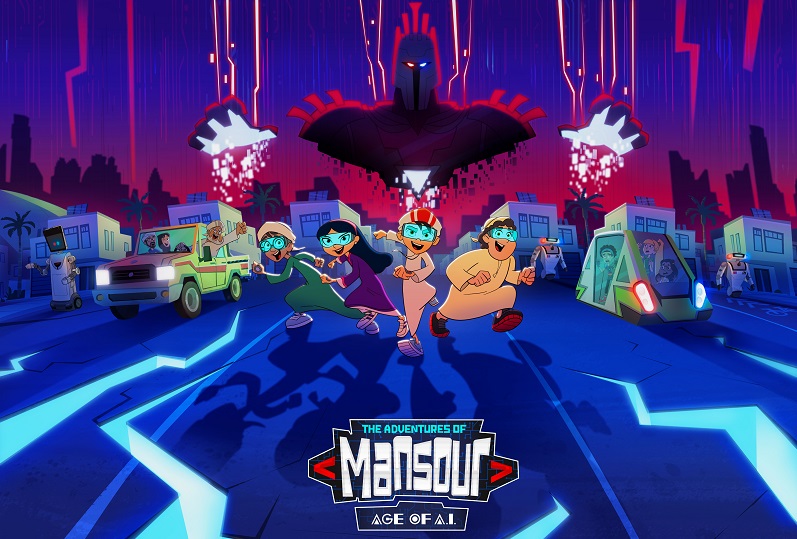For Ken Faier, the founder of Epic Story Media, the secret to creating memorable characters is physical humour and silliness. With more than two decades of industry experience, having seen it all, Faier now “lives out his bags” and is a well-known face at global content markets.
His company, Toronto-based Epic Story Media, produces original brands that have an international reach. For them, catering to kids is all about creating franchises with a 360 degree potential that can last a lifetime.
At the biggest content market Mipcom, Faier and Epic’s distribution and brand strategy head Jessica Labi spoke to AnimationXpress about building brand value, creating memorable characters and sailing through challenging times in the animation industry.
Characters and comedy
Faier explained that while most creators strive for comedy in creating iconic characters, the tone of comedy is different in every region. “Which is why physical humour resonates globally with younger kids. And we specialise in that.”
He used the word “silly” to emphasise deriving humour from simple, funny and little things in our surroundings. “I think writing a great character comes down to nailing the authentic personality; because we all look at personalities, that’s what is entertaining. It is hard to achieve those pure, iconic personality traits which would resonate globally. But we try to represent them.”
Epic’s 2D musical series Clawlolo, which the company represented at Mipcom and was featured in the MIPJunior screening library, is the best example. “Clawlolo is unique because it is a short form, non-dialog series which resonates with children and their parents alike,” pointed out Labi.
Catering to a diverse market
Faier highlighted that despite being brought up in diverse cultures around the world, there are certain similarities in the upbringing of children. “The development stage i.e. the initial years of kids around the world is similar.” The impact of culture on children starts later, and could be diverse, depending on the community, country or religion that the child is born into, he added. “But it is important to create content that resonates with different markets. So our writing team is diverse, with people that represent different backgrounds.”
He referred to Epic’s collaboration with UAE’s Bidaya Media for the animated adventure series The Adventures of Mansour: Age of AI, which is about a 12-year-old tech wizard dealing with the unpredictable realities of life with an advanced, trouble-making AI. The comedy series, developed and produced by Bidaya in English and Arabic, covers universal issues and themes that speak to the current generation of children globally. The show playfully addresses the benefits and challenges of artificial intelligence. “The show is not about culture or religion. It’s a great story with the characters rooted in a market that’s under-represented upstream,” he said.
Challenges and scopes
Despite a challenging time for the animation industry and the television business taking a hit due to changing viewing habits of children, Faier felt that animated storytelling will live on. “I don’t know if the budgets are growing, but the places to exploit and program your content are huge.”
The Gen Alpha is growing up differently, learning to swipe content on YouTube and other digital platforms at an early age. In conclusion, Faier mentioned that this is why the creators and distributors are striving to be at all the places where the kids are right now. “For linear as well as gaming content, we look at franchises in terms of the return on investment they provide. We have a mobile game studio and a Roblox game development studio. We work with licensees in the game inside,” he shared. These various opportunities demand new models of monetisation too. “Every platform has its own model, whether it is revenue share or a licence fee. And no matter what, all of these platforms will always require fresh content.”


